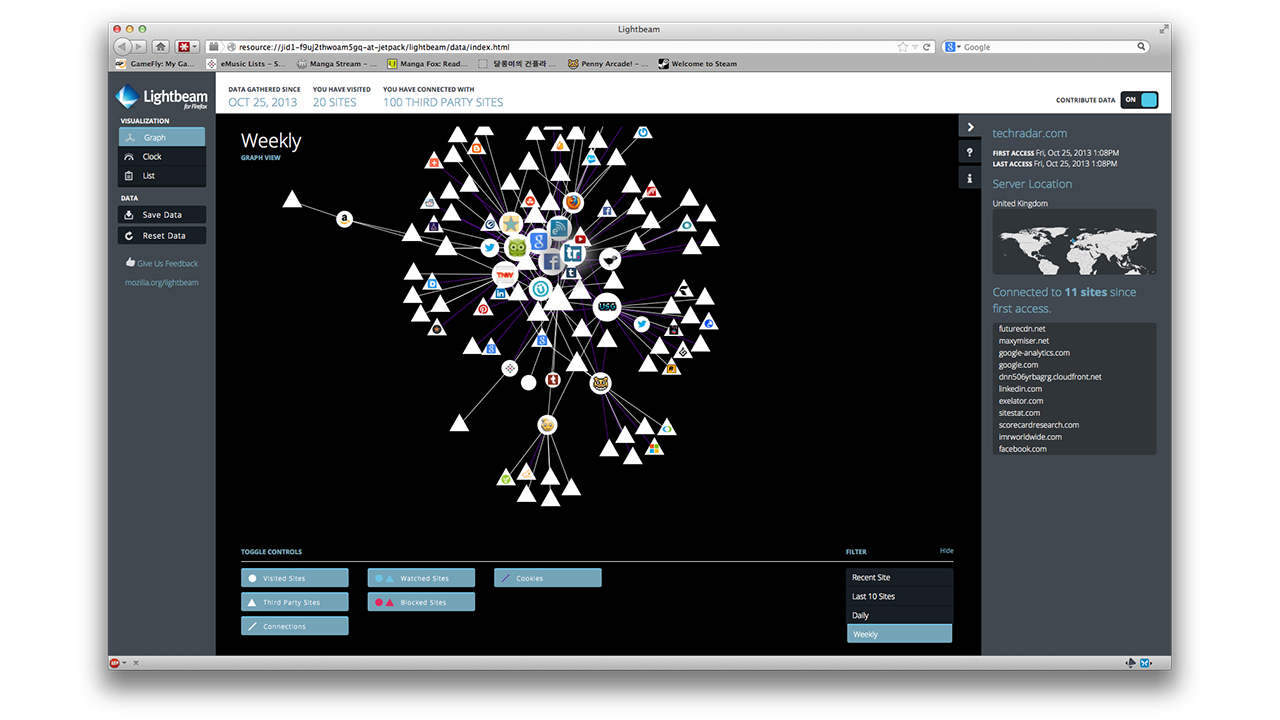
Nowadays when many companies are tracking and watching user data, it's refreshing to be the one doing all the watching.
Mozilla, the makers of Firefox, have released an add-on called Lightbeam that shows users which websites are tracking and monitoring them online, and how they are all connected.
The new Lightbeam shines a light on how all sites in the world wide web are connected by either sharing direct connections or passing user web browsing cookies between third-party tools - including social media, advertising, web traffic analytics, or other.
To the average user it may just be an amusing (and disconcerting) look at how widely their data is being tracked and shared as they move around the web, but it can also be a cool and useful tool for the web curious.
For truth, justice and all that jazz
In a press release Alex Fowler, lead privacy and public policy maker at Mozilla, said that the company introduced Lightbeam because the Internet needs transparency more than ever.
"While revelations about government surveillance continue to stun people around the world, there's a diverse range of third party companies that shape so much of our online experiences today from advertising to social sharing to personalization," he said.
Fowler went on to explain that third parties are an integral part of the way the internet works today, but at the same time it has eroded the public's trust.
Sign up to the TechRadar Pro newsletter to get all the top news, opinion, features and guidance your business needs to succeed!
"With the Lightbeam for Firefox add-on and open data, we're providing a valuable community research platform to raise awareness, promote analysis and, ultimately, affect change in the areas of tracking and privacy."
Nice fox?
It would be naïve to think that Mozilla is doing all of this from the kindness of its heart, especially when Chrome has eroded Firefox's lead as the global web browser.
It's possible Lightroom is just another way of Mozilla pitching another feature to bring back users.
But this sort of openness has always been Mozilla's MO. If you weren't there for the original Firefox versus Internet Explorer days, Firefox was a new open-source browser that let you take control with tab add-ons (which were a novel concept back then) and all the flair of personalization features.
Kevin Lee was a former computing reporter at TechRadar. Kevin is now the SEO Updates Editor at IGN based in New York. He handles all of the best of tech buying guides while also dipping his hand in the entertainment and games evergreen content. Kevin has over eight years of experience in the tech and games publications with previous bylines at Polygon, PC World, and more. Outside of work, Kevin is major movie buff of cult and bad films. He also regularly plays flight & space sim and racing games. IRL he's a fan of archery, axe throwing, and board games.
